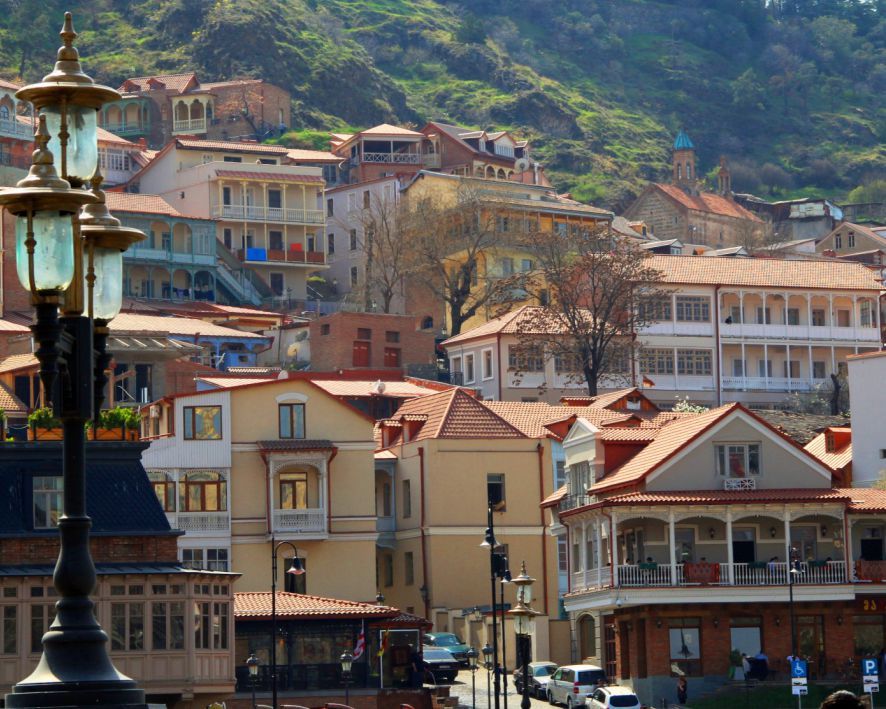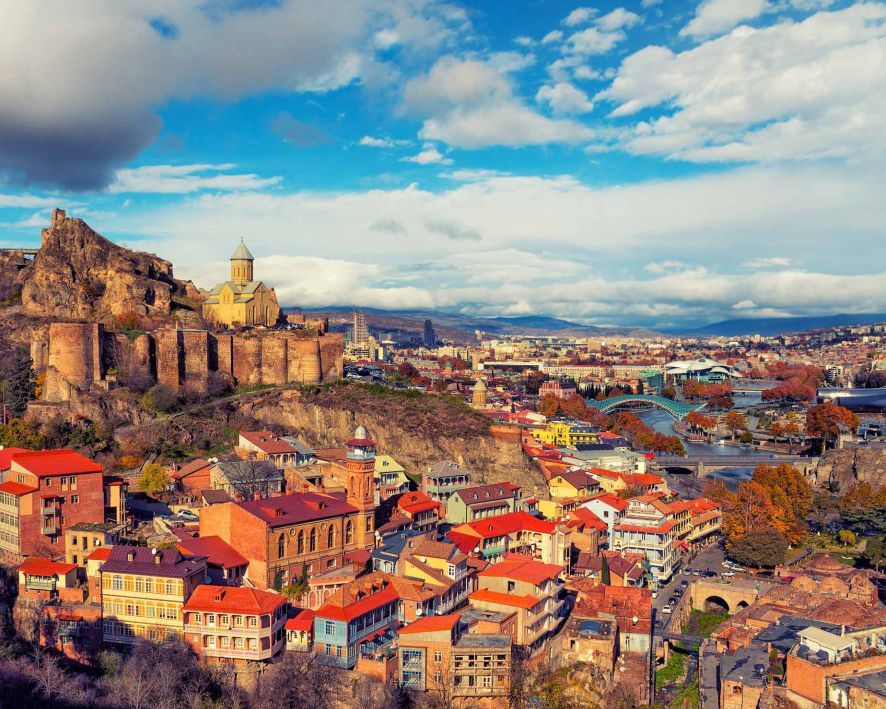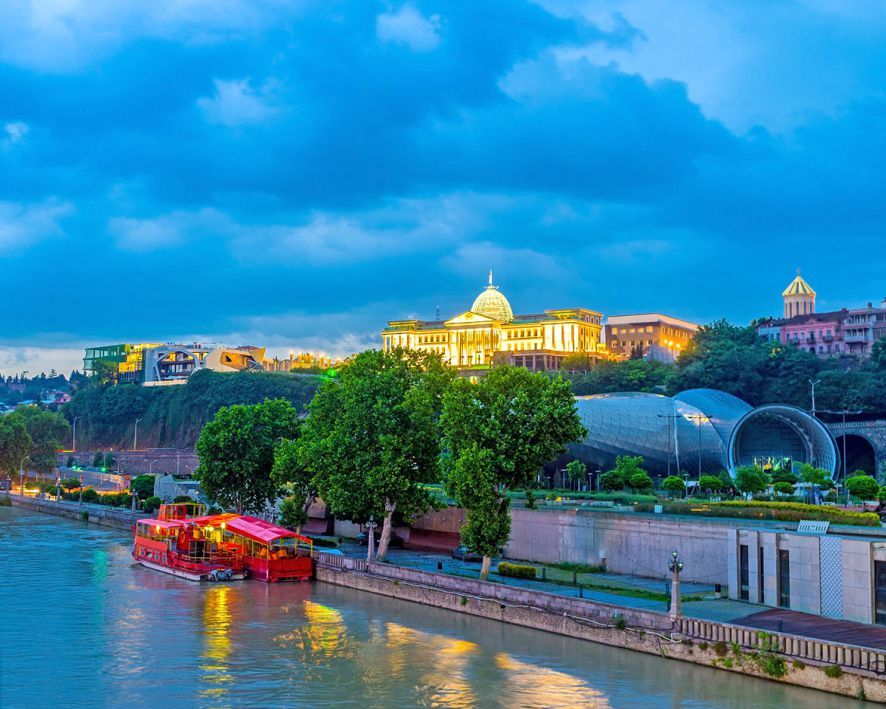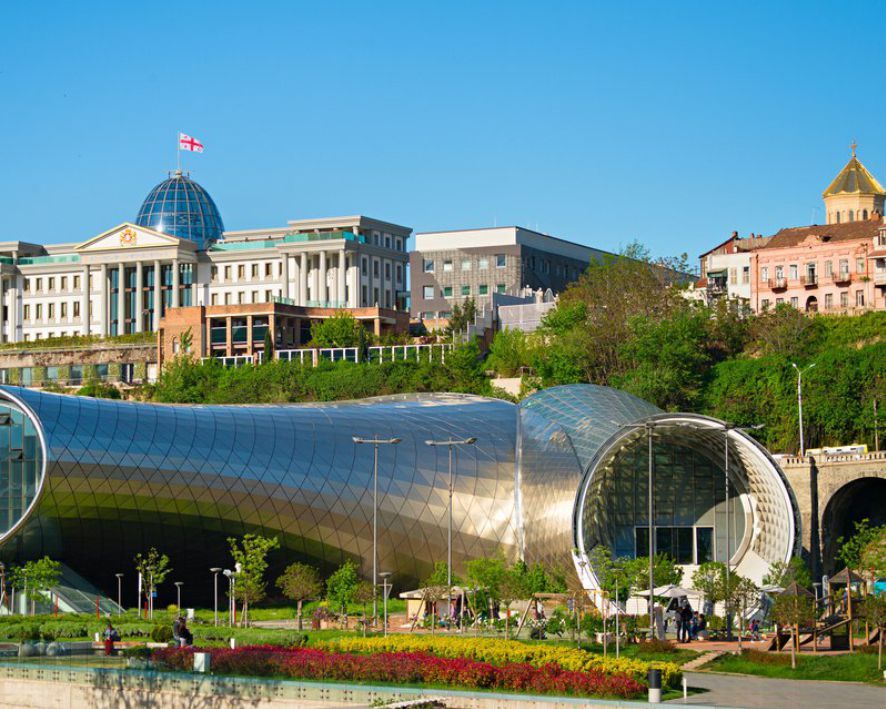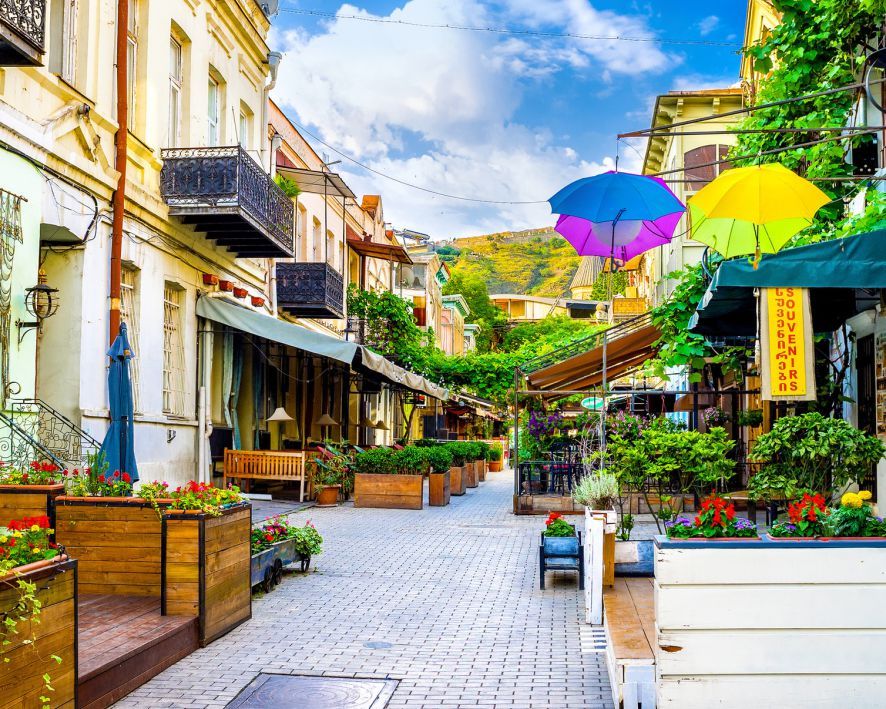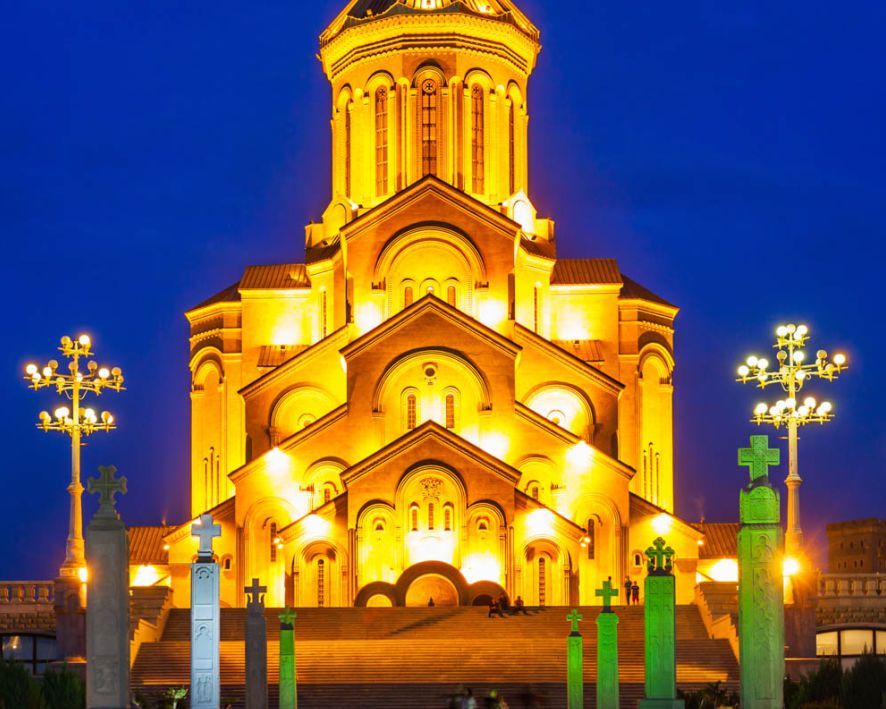Tbilisi
According to the legends, the territory of the city was covered with forests even in 458. When King Vakhtang I Gorgasal was hunting in the woods, his hunting falcon wounded a pheasant; the bird fell to the ground and, landing on a hot spring, was cooked. Surprised by such an event, the king ordered to build a city on this spot.
According to archaeological data, the territory was inhabited by people as early as the 4th millennium BC. King Vakhtang I Gorgasal probably did not establish the city, but restored and expanded it.
The history of Tbilisi as the capital of Georgia, begins approximately in the V century. Over its 1500-year history, Tbilisi was an important cultural, political, and economic center in the Caucasus. It was at the crossroads of important trade routes. King Dachi, successor of Vakhtang Gorgosal, completed the walls around the city. Further, the whole VI century, the city was growing and developing due to the good location on the trade route between Europe and Asia and thanks to the peaceful policy of Dachi.
The name Tbilisi is derived from the Georgian "tbili", meaning "warm", due to the warm sulfur springs on its territory. Famous saunas appeared on the place of sulfur springs, which can be visited in the city today.
According to the legends, the territory of the city was covered with forests even in 458. When King Vakhtang I Gorgasal was hunting in the woods, his hunting falcon wounded a pheasant; the bird fell to the ground and, landing on a hot spring, was cooked. Surprised by such an event, the king ordered to build a city on this spot.
According to archaeological data, the territory was inhabited by people as early as the 4th millennium BC. King Vakhtang I Gorgasal probably did not establish the city, but restored and expanded it.
The history of Tbilisi as the capital of Georgia, begins approximately in the V century. Over its 1500-year history, Tbilisi was an important cultural, political, and economic center in the Caucasus. It was at the crossroads of important trade routes. King Dachi, successor of Vakhtang Gorgosal, completed the walls around the city. Further, the whole VI century, the city was growing and developing due to the good location on the trade route between Europe and Asia and thanks to the peaceful policy of Dachi.
The name Tbilisi is derived from the Georgian "tbili", meaning "warm", due to the warm sulfur springs on its territory. Famous saunas appeared on the place of sulfur springs, which can be visited in the city today.

